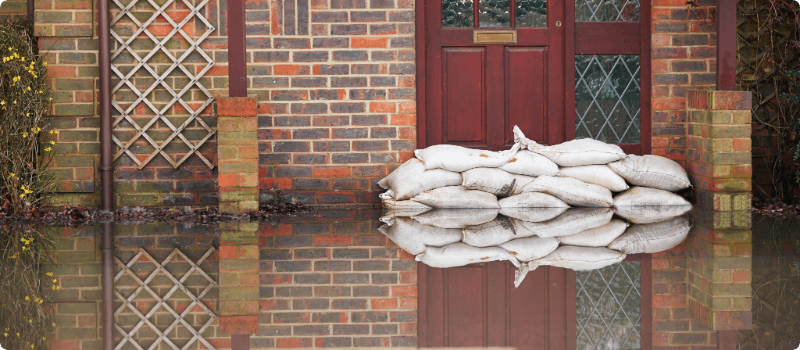Questions to Ask Your Home Insurance Agent
Updated June 25, 2024 . AmFam Team
Maybe you’ve owned your home for a while now, are on your second home or perhaps you’re new to owning a home. Whatever the case may be, there are things about homeowners insurance that you probably have questions about — or may not know at all.
Knowing what kind of protection you have and understanding how it protects you is a smart move as a homeowner. We’ve created a list of questions to ask your agent about homeowners insurance, so you can clear up any confusion and ensure you have the proper coverage in place.
Here’s What to Ask Your Agent About Home Insurance
Set up a personal insurance review with your agent to discuss these questions about homeowners insurance:
Does my policy cover actual cash value or replacement cost value?
When you have a homeowners insurance policy, you’ll have one of two types of coverage: actual cash value or replacement cost value.
An actual cash value (ACV) insurance policy pays you what your property is worth today, factoring in things like age, condition and the expected life of the property. Replacement cost value (RCV) is the amount it costs to replace your property with new property, without deducting for depreciation. Which means in the event of a loss, we’ll pay you enough to replace your damaged property with new property of the same type, kind and quality and you won’t have to worry about paying more than your deductible to cover the damage.
So is actual cash value or replacement cost value better? Well, ACV does cost less, but it typically won’t pay enough to fully repair or rebuild your home, or to fully cover the cost of property that was damaged, destroyed or stolen.
On the other hand, RCV covers more of the cost if your home or property experiences damage, which is the way to go if you’re OK paying a little more now to pay a lot less if you face a loss.
Usually, your home’s structure is covered at replacement cost, while your personal property, like furniture, clothing and appliances, are covered at actual cash value. Ask your agent if your policy provides actual cash value or replacement cost and find out what you need to do to get the best protection.
How much would it cost to rebuild my home in the event of a total loss?
When you get home insurance, you’ll choose a coverage amount to cover your home’s structure against certain things, like fire. A good rule of thumb is to choose an amount that’ll cover the full cost to rebuild your home. But how much homeowners insurance you need also depends on a variety of factors, including location, the age of your home, how it was built and renovations.
Your best bet to determine the cost to rebuild your house is to have a qualified contractor or appraiser evaluate your home.

Do I have enough personal property coverage?
Personal property coverage protects the belongings in your home in the case of sudden and accidental damage or theft. The value of all the items you have in your home — such as furniture, appliances, electronics, clothing — adds up fast! Creating a home inventory not only helps you estimate how much coverage you need, but it’ll provide a detailed list that you can give to your agent in case you have to file a claim.
Certain types of property, usually more valuable items, like your jewelry or artwork, have specific coverage sub-limits, meaning your insurance will only pay a certain amount for those types of items regardless of your total limit for personal property. For example, your homeowners personal property coverage will typically cover between $1,000 to $2,000 total for all of your jewelry combined. If your jewelry is worth more than that amount, you may want to consider itemizing your jewelry. Itemizing (also known as scheduling) your personal property is an add-on to your policy that provides an increased level of coverage for more valuable items, like your jewelry, and it also provides coverage for a greater number of risks.
Ask your agent about your personal property coverage limits and if there are any items you should consider itemizing.
Do I qualify for any discounts?
Most insurance companies offer a variety of discounts you can earn to lower your home insurance premium. From installing smart home devices to going paperless, your insurance agent will help you determine your eligibility for discounts.
Can I save money if I insure my vehicle and home with the same company?
Absolutely! In the insurance world, this is called bundling. Not only can you save money by insuring your car and home — or boat, renters, life policy, etc. — with the same company, you’ll enjoy the convenience of all your policies being in one place. Learn more about car and home insurance bundles and ask your agent if you can earn a discount for bundling your policies.
At American Family Insurance, customers who bundle their auto and home insurance policies can save up to 23% on both policies together.*

Is flood insurance included in my policy?
Most home insurance policies don’t cover damage from flooding. The good news is you can purchase flood insurance to protect your home and belongings from this type of damage. Whether you live in a flood-prone area or not, it's smart to have flood insurance — ask your agent how you can get flood insurance added to your policy for an affordable rate.
Am I fully covered if someone is injured in my home?
Apart from protecting the structure of your home and your personal property, homeowners insurance offers liability coverage. Liability coverage protects you if you’re legally responsible for damage to someone’s property, or if you accidentally injure someone whether you’re at home or away from it.
Like any coverage, your personal liability coverage offers protection up to your policy limit, which is the most your insurance company pays in the event of a claim. You’ll work with your agent to select a coverage limit and any expense that extends beyond your limit will come out of your pocket. So work with your agent to learn more about your liability coverage limit and they’ll help you determine if you need more coverage based on unique circumstances of your home, like if you own a pool or have a pet.
That’s where you might want to consider an umbrella policy.
Do I need an umbrella policy for additional liability coverage?
An umbrella policy provides an additional layer of liability coverage above your homeowners policy, so in the event of a substantial claim, you won’t have to dig into your savings or sell assets.
For example, if you own a dog and it injures a guest, a dog bite claim could surpass your personal liability limit. Having umbrella insurance provides an additional layer of protection should a claim exceed the liability limits you selected within your homeowners policy and helps protect you assets. Ask your agent if umbrella insurance is a good idea for you.
Want to get even more in the know about homeowners insurance? Check out our home insurance checklist. It’s a detailed guide to helping you better understand what you should be getting out of your coverage. Don’t forget — your agent is an expert in all things insurance. Connect with them and take the time to ask questions so you gain confidence knowing that your coverage is protecting what matters most.
This information represents only a brief description of coverages, is not part of your policy, and is not a promise or guarantee of coverage. If there is any conflict between this information and your policy, the provisions of the policy will prevail. Insurance policy terms and conditions may apply. Exclusions may apply to policies, endorsements, or riders. Coverage may vary by state and may be subject to change. Some products are not available in every state. Please read your policy and contact your agent for assistance.
*Customers who bundle an auto policy with their home policy may save up to 23% on their auto policy (as of December 2023). Discounts may vary by state, property, policy form and company underwriting the policy. Discounts may not apply to all coverages on an auto policy.

